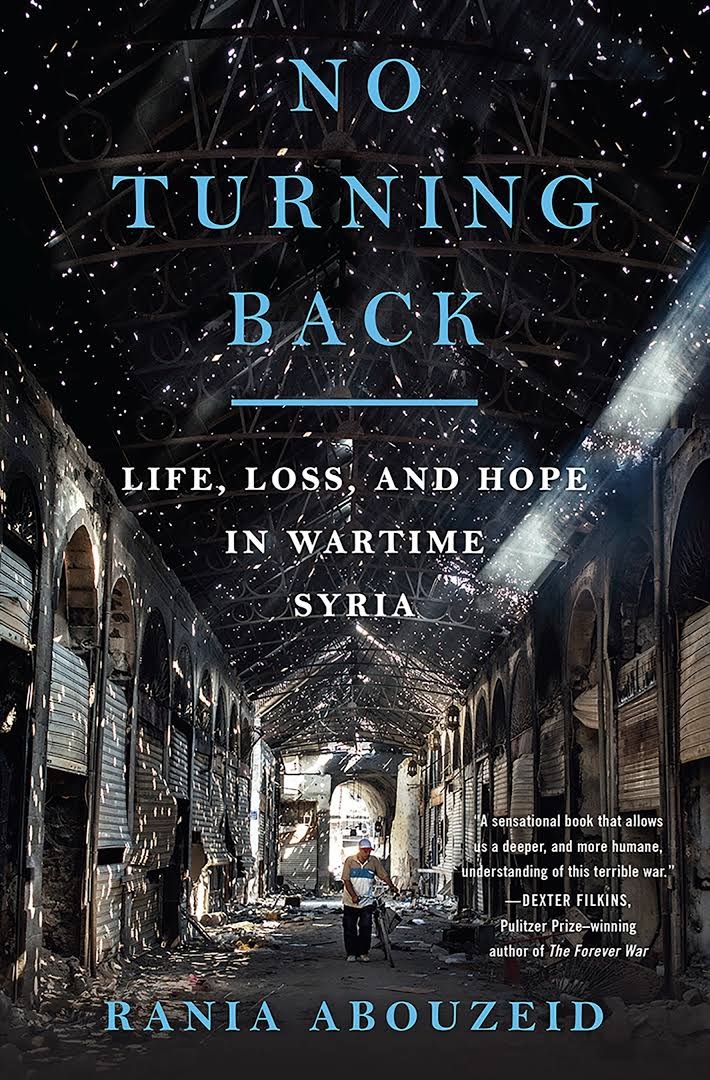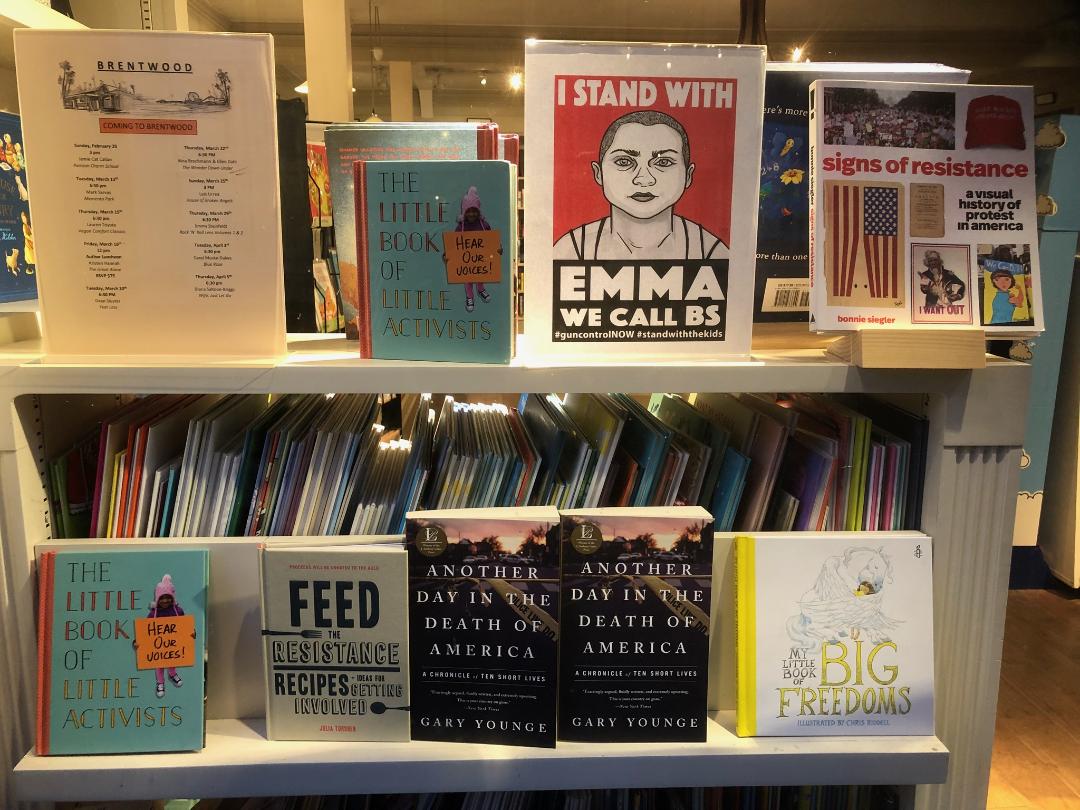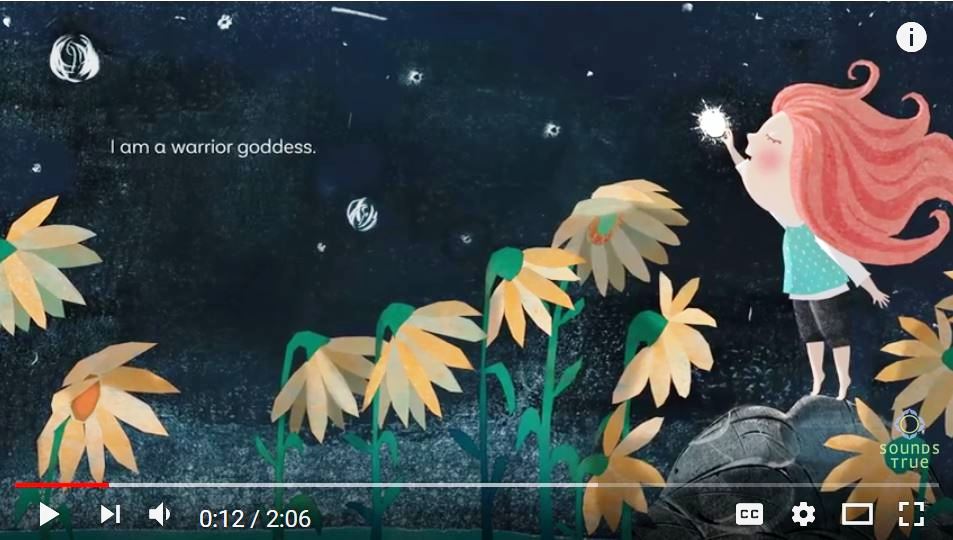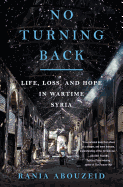 In 2011, award-winning journalist Rania Abouzeid was blacklisted by the Syrian regime, designated a spy and banned from entering the country. She continued to enter Syria illegally with the advantage of her fluency in Arabic and her ability to blend into crowds. No Turning Back is an account of her six years following civilians, soldiers, gun runners, children, a doctor, a cleric, poets, prisoners and activists as their country devolved into a bitter civil war. For the most part, it is told in their voices. "I went to Syria to see, to investigate, to listen--not to talk over people who can speak for themselves. They are not voiceless. It is not my story. It is theirs."
In 2011, award-winning journalist Rania Abouzeid was blacklisted by the Syrian regime, designated a spy and banned from entering the country. She continued to enter Syria illegally with the advantage of her fluency in Arabic and her ability to blend into crowds. No Turning Back is an account of her six years following civilians, soldiers, gun runners, children, a doctor, a cleric, poets, prisoners and activists as their country devolved into a bitter civil war. For the most part, it is told in their voices. "I went to Syria to see, to investigate, to listen--not to talk over people who can speak for themselves. They are not voiceless. It is not my story. It is theirs."
Abouzeid describes Syria as a state "built on silence, and fear, and... [a] permanent state of emergency." Syrians, scarred by decades of a repressive regime, were pushed beyond the end of their patience by generations of violence and grief, and broke out into protests. "Many had stories about a brother, a daughter, a neighbor, a friend who was killed or wounded or disappeared. They wanted to be heard. Modesty was discarded as clothing was edged away to reveal scars, electrical burns, or the red-raw anger of bullet wounds. Mobile phones, like so many fireflies, lit up with grisly images of corpses that were once loved ones."
"Everybody here is a martyr in waiting. Either we die free or we die," a young man in a crowd shouts. "And besides, he said, he was sure the international community would soon demand an end to the violence: 'They can't stay quiet forever as we die, can they?' "
Abouzeid carefully disentangles the significance of complex and shifting political, ethnic and religious identities involved, and provides expert historical and political context, maintaining strict objectivity and taking no sides. She explains her criteria for believing a story, and how she came to be deceived in her earlier reporting of certain incidents. Readers may still be horrified by the actions of some of her subjects, but will come away with a better understanding of their motivations. Some of Abouzeid's subjects flee Syria, adapt and don't want to return. Others face the terrible choice between staying despite lost homes, family and friends, risk of being tortured and losing their lives--or becoming an exile from the country and people they love and for whom they have sacrificed so much. This may be the most intimate and epic account yet for the ongoing tragedy of the Syrian civil war. --Sara Catterall
Shelf Talker: An intimate and epic account of the Syrian civil war, from six years on the front lines.
 "Understanding the first chapter of our national story is more essential today than ever. These books reconnect us with ideas that made the United States a beacon for democratic movements around the world."
"Understanding the first chapter of our national story is more essential today than ever. These books reconnect us with ideas that made the United States a beacon for democratic movements around the world."




IPC.0204.S3.INDIEPRESSMONTHCONTEST.gif)






 Effective March 1, the University of Washington Press is joining the University of Washington Libraries. In its announcement, the university said that the Press and Libraries "currently collaborate on a number of joint initiatives, including exploration of digital publishing platforms, open access publishing, open educational resources development, and support for digital scholarship. The Press has also published a number of books in association with the Libraries, including Rural China on the Eve of Revolution; Mary Randlett Portraits; Roots and Reflections: South Asians in the Pacific Northwest; and Shadows of a Fleeting World: Pictorial Photography of the Seattle Camera Club.
Effective March 1, the University of Washington Press is joining the University of Washington Libraries. In its announcement, the university said that the Press and Libraries "currently collaborate on a number of joint initiatives, including exploration of digital publishing platforms, open access publishing, open educational resources development, and support for digital scholarship. The Press has also published a number of books in association with the Libraries, including Rural China on the Eve of Revolution; Mary Randlett Portraits; Roots and Reflections: South Asians in the Pacific Northwest; and Shadows of a Fleeting World: Pictorial Photography of the Seattle Camera Club.

IPC.0211.T4.INDIEPRESSMONTH.gif)
 Posted on Facebook earlier this week by
Posted on Facebook earlier this week by  I Am a Warrior Goddess
I Am a Warrior Goddess In 2011, award-winning journalist Rania Abouzeid was blacklisted by the Syrian regime, designated a spy and banned from entering the country. She continued to enter Syria illegally with the advantage of her fluency in Arabic and her ability to blend into crowds. No Turning Back is an account of her six years following civilians, soldiers, gun runners, children, a doctor, a cleric, poets, prisoners and activists as their country devolved into a bitter civil war. For the most part, it is told in their voices. "I went to Syria to see, to investigate, to listen--not to talk over people who can speak for themselves. They are not voiceless. It is not my story. It is theirs."
In 2011, award-winning journalist Rania Abouzeid was blacklisted by the Syrian regime, designated a spy and banned from entering the country. She continued to enter Syria illegally with the advantage of her fluency in Arabic and her ability to blend into crowds. No Turning Back is an account of her six years following civilians, soldiers, gun runners, children, a doctor, a cleric, poets, prisoners and activists as their country devolved into a bitter civil war. For the most part, it is told in their voices. "I went to Syria to see, to investigate, to listen--not to talk over people who can speak for themselves. They are not voiceless. It is not my story. It is theirs."